Chicken enthusiasts often explore various dietary options for their feathered friends in backyard poultry farming. One unconventional question that arises is, “Can chickens eat cat food?” This comprehensive guide will delve into the feasibility of incorporating cat food into a chicken’s diet, examining the nutritional components, potential benefits, and associated risks. By the end, you’ll understand whether cat food is a suitable supplement for your chickens.
Can Chickens Eat Cat Food is OK for Chickens
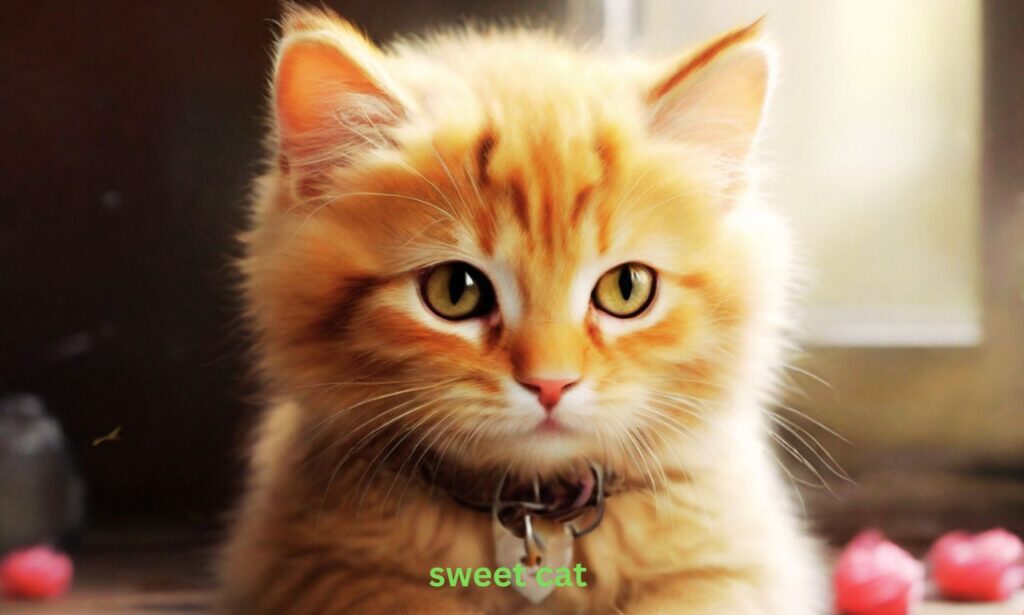
Don’t allow cat food to replace real chicken food in your chickens’ diet. It is possible to give your chicken cat food if it’s molting or making eggs. Their protein requirements increase during these times, so cat food is beneficial and practical. They can eat the standard chicken food when they don’t need any extra protein. Can chickens consume wet food?
Chickens can consume cats’ wet food. But do chickens have to eat wet cat food? Well, it is dependent on.
Wet cat food contains more calories and protein than dry cat food, so you should feed it to chickens as needed.
As mentioned before, chickens need excellent food sources during molting and egg-laying. So, wet cat food is a good option for a short period of time during such times.
If you provide chickens with wet cat food over a long period of time or even when they don’t consume more protein than normal, they might be exposed to the risk of consuming too much protein.
It is important to note that dry cat food contains more protein than wet cat food. So, you must always verify protein content to ensure you’re not feeding your chicken a lot of protein.
Can chickens eat dry cat food?
Chickens can eat the dry food of cats. But should chickens eat dry cat food
Dry cat foods are acceptable for molting or feeding chickens. Yet, it shouldn’t be an integral part of their diet because we’ve already discussed it.
Does dry Cat food do better Wet Cat Food for Chickens?
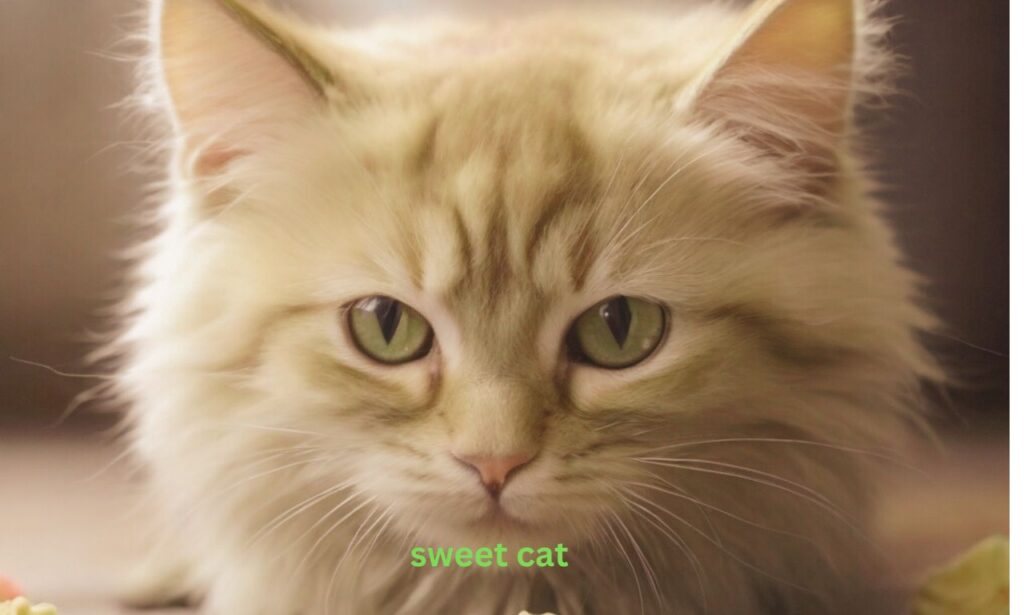
So, if all you’re after for your poultry is protein, wet cat food usually has higher protein levels. Yet, there are occasions when dry cat food has more protein.
Most people believe that cat food – either wet or dry, is not appropriate for chickens, and they could be right. Apart from the vast protein content in cat food posing an issue, the ingredients could cause the problem.
Certain cat food items might contain ingredients that are dangerous for chickens. Yet, the contents of the food can be harmful to humans. Unfortunately, if a person eats the egg or flesh of a chicken exposed to the toxin, it is possible to get sick.
There are fifteen types of protein-rich foods Chickens can eat.
Even though chickens can consume cat food, need to to explore another source of protein for your chickens. A few of them are the following:
Purina fancy feast delights with cheddar.
- Garden Peas
- Whey
- Buttermilk
- Cottage Cheese
- Yogurt
- Boiled Eggs
- Fish
- Mealworms
- Lentils
- Seeds for Pumpkin Seeds
- Sunflower Seeds
- Oats
- Parsley
- Milk
Of course, like anything else, giving your poultry moderation is crucial, especially on dairy items. If you give your chicken excessive amounts of milk, they’ll have diarrhea.
Keeping backyard chickens is a rewarding experience, but as a responsible owner, providing them with a well-balanced and nutritious diet is crucial. One common question that arises is whether chickens can eat cat food. In this comprehensive guide, we’ll delve into the nutritional needs of chickens, explore the components of cat food, and determine if it’s safe to incorporate into your feathered flock’s diet.
By the end of this guide, you’ll have a thorough understanding of the nutritional requirements of chickens, the components of cat food, and whether it’s a suitable addition to your chicken’s diet. Remember, a well-balanced and varied diet is essential for the health and productivity of your feathered friends.

When raising chickens, ensuring they receive a well-balanced and nutritious diet is crucial for their health and productivity. Chickens are omnivores, meaning they can consume various foods, including grains, vegetables, and even some protein sources. This raises the question: can chickens eat cat food? In this comprehensive guide, we’ll delve into the potential risks and benefits associated with feeding cat food to chickens, helping you make informed decisions for the well-being of your flock.
Section 1: Understanding Chicken Nutrition
Before exploring the compatibility of cat food with chickens, it’s essential to understand the nutritional needs of these feathered friends. Discuss the critical nutrients required for optimal chicken health, including protein, carbohydrates, vitamins, and minerals. Highlight the significance of a well-balanced diet in supporting egg production, feather quality, and vitality.
Section 2: The Composition of Cat Food
Examine the typical ingredients found in cat food and how they differ from the dietary requirements of chickens. Discuss the protein sources, fat content, and other additives present in commercial cat food. Emphasize the potential imbalances that may arise when introducing cat food into a chicken’s diet.
Section 3: Risks of Feeding Cat Food to Chickens
Delve into the potential drawbacks of incorporating cat food into a chicken’s diet. Discuss the risk of excessive protein intake, potential nutrient imbalances, and the impact on egg production. Explore any harmful additives or preservatives that might be present in cat food and their effects on poultry health.
Section 4: Benefits of Feeding Cat Food to Chickens

Despite the risks, there may be situations where cat food can offer some benefits to chickens. Discuss scenarios where cat food might be used as a supplement, address specific nutritional needs, or as a temporary solution during emergencies. Highlight any positive effects on feather quality, growth, or vitality.
Section 5: Safe Practices and Moderation Provide guidelines for introducing cat food to chickens if necessary. Emphasize the importance of moderation, ensuring it does not replace the core elements of their regular diet. Discuss monitoring chicken behavior and health indicators and consulting with a veterinarian to ensure the flock’s well-being.
They are known for their diverse diet, but when it comes to cat food, things can get tricky. Many poultry enthusiasts wonder whether it’s safe to feed cat food to chickens. This article will explore the potential risks and benefits of incorporating cat food into your chickens’ diet.
Section 1: The Nutritional Content of Cat Food: Cat food is formulated to meet the dietary needs of felines and contains high levels of protein. This section will delve into the
Section 2: Risks and Concerns: Feeding chickens cat food has drawbacks. This section will outline potential risks, such as nutrient imbalances, excessive fat intake, and the impact on egg production. It will also address specific ingredients in cat food that may be harmful to chickens.
Section 3: Moderation and Guidelines: If you decide to incorporate cat food into your chickens’ diet, moderation is key. This section will provide guidelines on how much cat food is safe for chickens, considering their size, age, and health.
Section 4: Alternative Protein Sources for Chickens: For those who prefer not to use cat food, this section will offer alternative protein sources more tailored to chickens’ nutritional requirements. Options like mealworms, insects, and specific poultry feeds will be discussed.
Section 1: Understanding Chicken Nutrition
Before delving into the specifics of cat food, it’s crucial to grasp the fundamentals of chicken nutrition. Chickens need a balanced diet of essential nutrients like protein, carbohydrates, fats, vitamins, and minerals for optimal health, egg production, and well-being.
Section 2: Components of Cat Food
Cat food comprises a blend of proteins, fats, and carbohydrates tailored to meet a feline’s nutritional needs. Exploring the ingredients in cat food is essential to understanding how suitable or unsuitable it might be for chickens.
Section 3: Analyzing the Ingredients
Here, we dissect the common ingredients found in cat food and assess their appropriateness for chickens. Highlighting each component’s nutritional value helps determine whether cat food can serve as a supplement or pose potential risks to your poultry.
Section 4: Risks Associated with Feeding Chickens and Cat Food
While chickens are known for their diverse diet, certain risks may be associated with introducing cat food into their regimen. This section explores potential pitfalls such as nutrient imbalances, health implications, and long-term effects on egg production.
Section 5: Benefits of Cat Food for Chickens
Contrary to the risks, there might be scenarios where cat food could benefit chickens. This section explores such possibilities, shedding light on whether cat food can be a viable source of supplementary nutrition under specific circumstances.
Section 7: Alternative Protein Sources for Chickens
In cases where cat food isn’t ideal, this section presents alternative protein sources that can enhance your chickens’ diet. Discover nutritious options to keep your flock thriving, from insects to plant-based proteins.
Section 8: Real-Life Experiences
Learn from their insights, successes, and challenges to make informed decisions for your chickens.
Section 9: Expert Opinions
Gaining insights from poultry nutrition experts and veterinarians adds credibility to the discussion. This section compiles expert opinions on whether chickens can consume cat food and the potential implications for their health.
Make informed decisions to ensure the well-being and vitality of their feathered companions.
Feel free to let me know if you’d like any modifications or if you have specific keywords you’d like to include!
Section 1: Understanding Chicken Nutrition
Before we explore the compatibility of cat food with chickens,
It’s crucial to grasp the basic nutritional requirements of these birds.
This section will cover.
the essential nutrients chickens need for optimal health,
including proteins
- carbohydrates,
- fats,
- vitamins,
- minerals.
1.1 Protein Requirements
Chickens are renowned for their high protein needs, especially during growth, egg production, and molting periods. We’ll examine the role of protein in chicken diets and why it is a crucial component of their well-being.
1.2 Carbohydrates and Fats
Beyond protein, carbohydrates, and fats are vital in supporting energy levels and maintaining proper functions in chickens. This section will delve into the sources of these nutrients and their significance in a chicken’s diet.
1.3 Vitamins and Minerals
Section 2: Cat Food Composition
To determine whether chickens can consume cat food, it’s essential to understand the composition of typical cat diets. This section will provide an in-depth analysis of the ingredients found in commercial cat food, examining the protein sources, fat content, and other nutritional components.
2.1 Protein Content in Cat Food
Cat food is often rich in animal-based proteins, which may suit chickens. We’ll explore the familiar protein sources in cat food and assess their compatibility with the nutritional needs of chickens.
2.2 Fats and Carbohydrates in Cat Food
Understanding cat food’s fat and carbohydrate content is crucial in evaluating its appropriateness for chickens. This section will dissect the types of fats and carbohydrates present and their potential impact on poultry health.
Potential Benefits
There might be some advantages to supplementing a chicken’s diet with cat food. We’ll explore scenarios where cat food could be viable and contribute to chicken health.
Section 4: Safe Practices and Guidelines
For those considering adding cat food to their chicken diet, it’s crucial to establish safe practices and guidelines. This section will recommend moderation, suitable cat food types, and monitoring chicken health when introducing this unconventional feed option.
4.1 Moderation and Balance
Balancing the inclusion of cat food with a well-rounded chicken diet is essential. We’ll discuss moderation guidelines to prevent nutritional imbalances and potential health issues.
4.2 Suitable Cat Food Types
Not all cat foods are created equal. This section will guide poultry enthusiasts in choosing cat food varieties that align with the nutritional needs of chickens, considering protein sources, fat content, and extra additives.
4.3 Monitoring Chicken Health
Regular health monitoring is crucial when experimenting with alternative feeds. We’ll provide insights into signs of nutritional deficiencies or excesses and how to address them.
Section 5: Alternatives to Cat Food
While cat food may be an option for some, alternative feeds better cater to the nutritional requirements of chickens. This section will explore alternative protein sources, supplementary feeds, and homemade options to diversify a chicken’s diet.
5.1 Insect Proteins
Insects are a natural and nutritious protein source for chickens. We’ll discuss the benefits of incorporating insects into their diet and potential sources for backyard farmers.
5.2 Supplementary Feeds
Examining available supplementary feeds designed for poultry can provide valuable insights into enhancing the nutrition of chickens.
5.3 Homemade Feed Options
For those who prefer a hands-on approach, creating homemade feed tailored to meet the specific needs of chickens can be rewarding. We’ll explore recipes and considerations for homemade chicken diets.
One of the best cat food overviews
Purina Fancy Feast Delight Cheddar
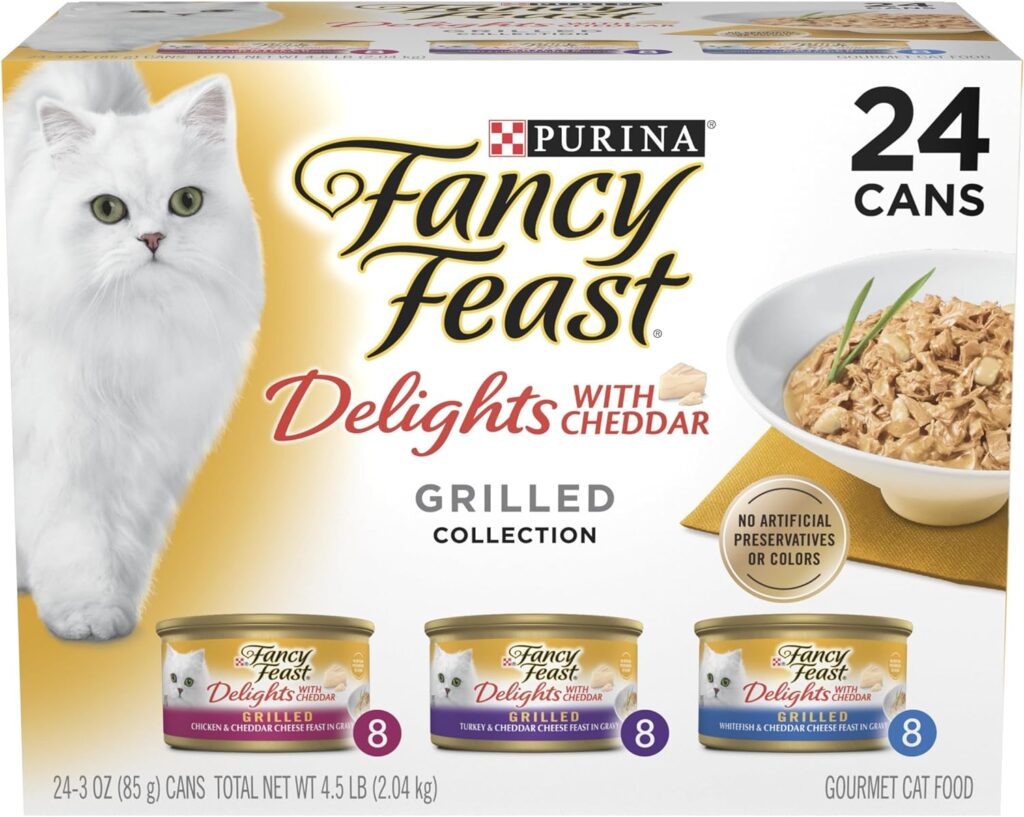
Is chicken food safe for cats?
Feeding chicken to cats is generally safe, but it should be boneless, skinless, and cooked. Ensure it’s free from seasoning, garlic, and onions, as they can be harmful. Moderation is vital to prevent dietary imbalances. Consult a veterinarian to create a well-rounded diet suitable for your cat’s needs and health conditions.
Chickens can eat cat food?
Chickens can eat cat food, but it’s not recommended as a primary diet. Cat food lacks essential nutrients vital for a chicken’s health. Excessive protein in cat food may cause kidney damage in chickens. It’s crucial to provide them with a balanced diet, consisting of poultry feed and grains.
Is it OK for chickens to eat cat food?
Chickens should refrain from consuming cat food, as it lacks essential nutrients for optimal health. While an occasional, small amount may not harm them, a balanced poultry feed is recommended. Cat food doesn’t meet their dietary needs, leading to nutritional deficiencies and health issues in the long run.
What do chickens think about cat food?
Chickens likely view cat food with confusion, as their natural diet consists of grains and insects. The smell and taste of cat food might be unfamiliar and unappealing to them. Chickens are generally more interested in seeds, worms, and grains than processed pet food.
Final Thoughts
Chickens may consume cat food while molting or laying eggs. The extra protein can help them cope with these situations. Yet, in normal circumstances, the chickens must be fed with chicken feed. The high protein levels found in cat food could be dangerous to chickens if it is not used.
If the safety of ingredients in your chicken’s cat food worries you, consider trying one of the options mentioned in the previous paragraphs.
Conclusion:
In conclusion, whether chickens can eat cat food has a nuanced answer. While it may offer some benefits, weighing these against the potential risks is crucial. Every chicken owner should make informed decisions based on their flock’s unique needs, keeping moderation and balance in mind.

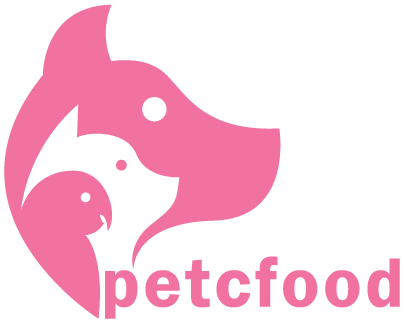
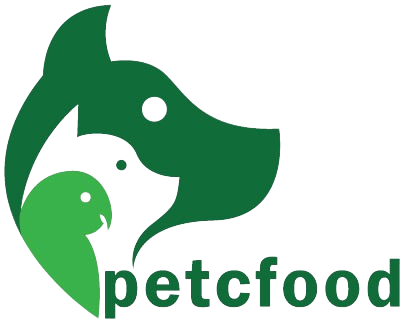
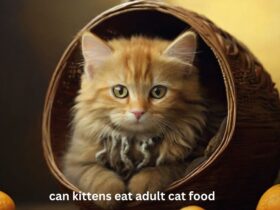


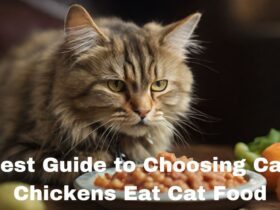




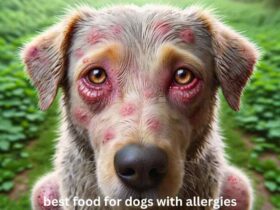

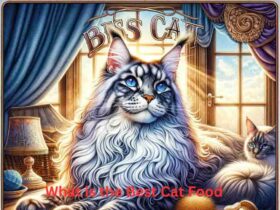
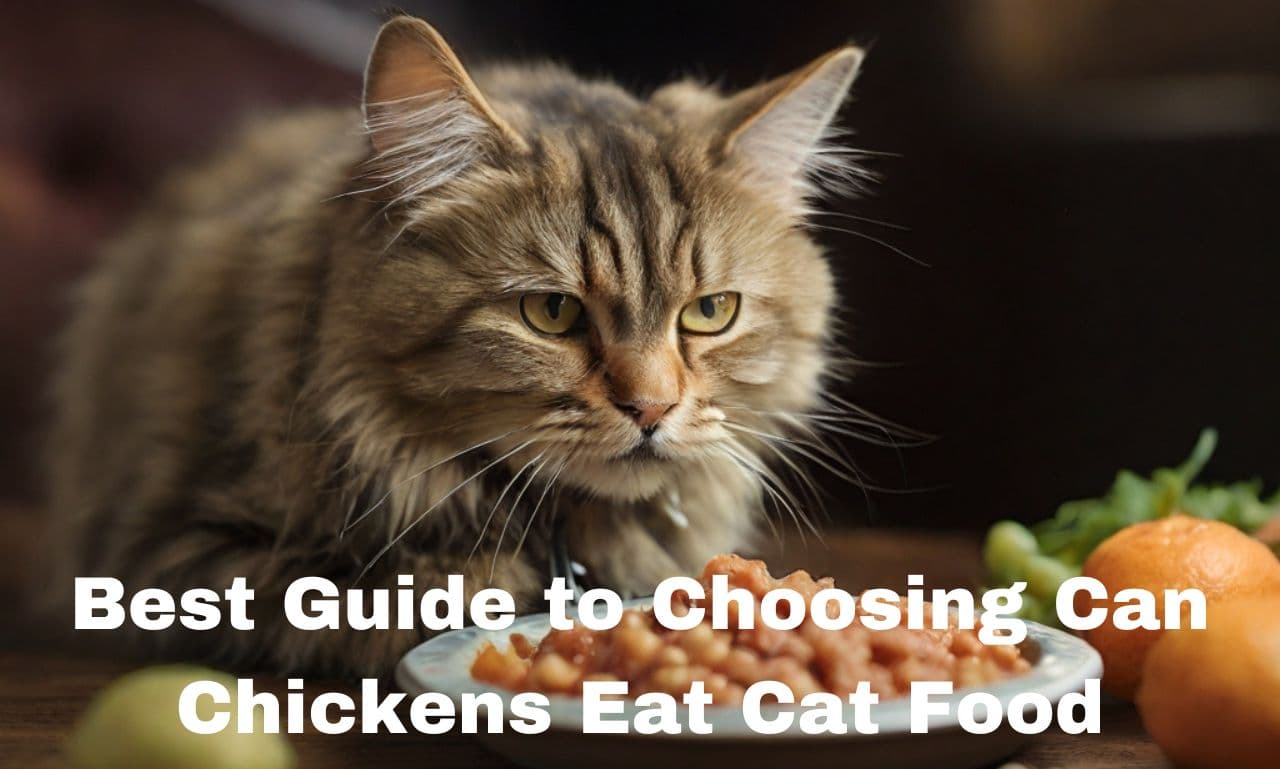
Leave a Review